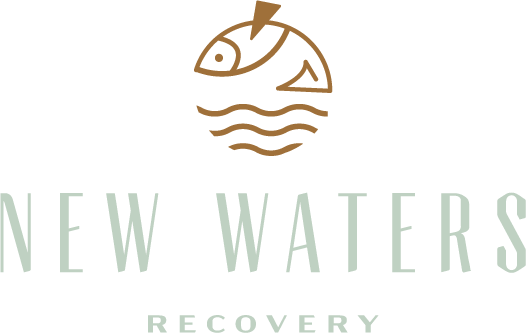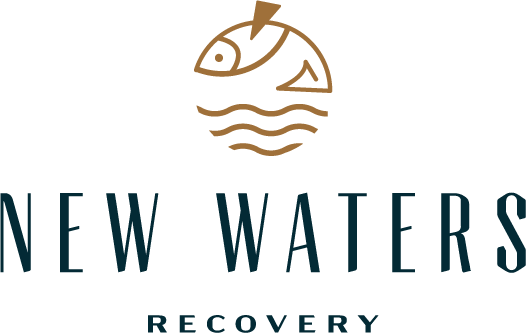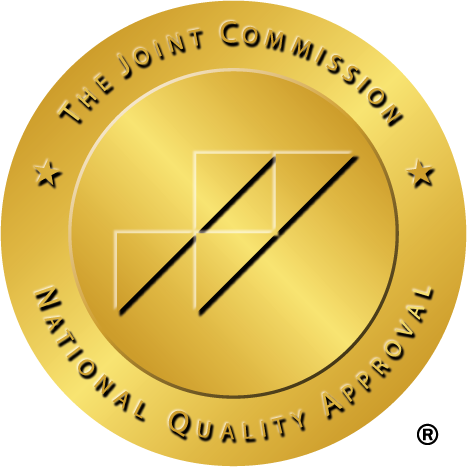Psychological Evaluation, Assessment & Testing in Raleigh, North Carolina
New Waters Recovery offers a comprehensive 5-7 day psychological evaluation, assessment & testing program in Raleigh, North Carolina, for those struggling with substance use disorder or experiencing symptoms of a stand alone mental health disorder. Our assessment program is one of the most thorough and extensive in the area, offering a full range of medical testing, psychiatric evaluations and psycho-diagnostic testing.
Clients may enroll in our assessment program regardless of their history with addiction or substance use, and it may be recommended for those receiving our medical detox services.

Why Undergo Psychological Testing?
Addiction is a complex disease that can have a number of underlying causes and risk factors. Sometimes substance use can mask mental health issues, and other times it can exacerbate conditions like anxiety and depression. Withdrawal symptoms can also mimic mental illness or may temporarily create psychiatric instability.
For these reasons, it is crucial to understand the nuances of an individual's experience and identify the distinct causes of a particular symptom before prescribing a medication or recommending a treatment option.
Too many addiction treatment centers address mental health as an afterthought, instead of recognizing how closely tied it can be to a person's dependence on substances. Failing to identify underlying mental illnesses or misdiagnosing psychological or physical symptoms can render treatment ineffective, leading to relapse.
Our Assessment & Evaluation Process
Addiction treatment centers may offer some basic psychological testing, but New Waters Recovery provides a detailed and comprehensive mental health assessment that lasts for a full week and is customized to meet the needs of each individual client.
We utilize the most accurate, advanced and up-to-date assessment tools and medical tests to understand the totality of a person's experience before formulating a personalized treatment plan.
While the psychological evaluation process will look slightly different for each client, our basic process for testing is as follows:
1. Pre-Screen/Assessment Process
Before an individual is admitted into our detox or clinical assessment program, we conduct a pre-screening over the phone to determine the severity of their symptoms. If a person is going through withdrawal from drugs or alcohol, we may recommend that they enter our medical detox program to become stable and sober before continuing.
2. Case Management
Each client will be assigned a case manager who will oversee their treatment and update their family or loved ones, if applicable. Our dedicated case management services are a cornerstone of our detox and assessment programs, allowing us to formulate highly personalized treatment plans that target the root causes of a person's mental illness or addiction.
3. Clinical Assessments
Over the course of a week, clients in our psychological evaluation track will meet one-on-one with our experienced mental health team and undergo a series of psycho-diagnostic and biopsychosocial assessments. During these assessments, clinicians will ask questions about clients' medical and family history, mental status, physical health, past traumas, and any chronic or new symptoms they may be experiencing. At the conclusion of the assessment period, clients will have a feedback session with their treatment team, including loved ones if appropriate, and the team will help develop an effective aftercare plan.
4. Medication Management and Monitoring
During the clinical assessment period, our mental health team may recommend certain medications or other treatments to help alleviate uncomfortable or distracting mental health symptoms. We know that reducing symptoms is not the same as healing the underlying cause of mental illness or addiction, however, many clients need a respite from their physical and psychological symptoms so that they can focus fully on their recovery and build healthy new habits. Our experienced team will monitor the effects of these medications throughout treatment to ensure they are working and are not triggering any undesirable side effects.
5. Aftercare Planning
One of the most important aspects of our treatment process is setting clients up for success when they leave our program. Once we have completed the psychological evaluation and identified the underlying causes of an individual's mental health symptoms or addiction, we provide personalized aftercare planning services to ensure they have the resources, support, and accountability they need moving forward. Whether clients transfer from our program to a local rehab, a mental health treatment facility, or back home, we do everything in our power to make the transition a smooth and helpful one.
ABOUT OUR PSYCHOLOGICAL TESTING FACILITY IN RALEIGH, NC
Psychological Evaluation Tools We Use
New Waters Recovery utilizes the most effective evidence-based psychological evaluation tools to understand our clients’ behavior and symptoms—and to help them better understand themselves. These assessments are conducted with the utmost care and compassion at our facility in Raleigh, NC, respecting the dignity and privacy of our clients.
By providing a comprehensive range of clinical assessments over the course of five to seven days, we can help determine whether a client has a mental health disorder, past trauma, or physical issue that is contributing to their symptoms.
Psychological / Personality
Structured Clinical Interview for DSM-5
This interview guide allows a practitioner to make major DSM-5 diagnoses. The DSM-5 is the manual used by mental health providers to classify major mental health disorders. Individuals participating in the Structured Clinical Interview for DSM-5 may be either psychiatric or general medical clients.
Personality Assessment Inventory
The Personality Assessment Inventory helps assess psychopathological syndromes. Clinical professionals utilize this inventory for diagnoses and treatment planning.
Millon Clinical Multiaxial Inventory-III
Factoring in each client’s coping mechanisms and personality styles, this inventory helps to identify 24 different personality disorders and psychological syndromes.
Minnesota Multiphasic Personality Inventory, 3rd edition (MMPI-3)
This assessment is a standardized personality evaluation that can be used in various clinical and medical settings. It takes approximately 30 minutes to complete.
Trauma
PTSD Checklist for DSM-5 (PCL-5)
This assessment tool is the gold standard for making a provisional diagnosis for Post Traumatic Stress Disorder (PTSD). This 20-item measurement helps assess the symptoms of PTSD as outlined in the DSM-5. It can be used to screen individuals for PTSD as well as to monitor symptoms during and after substance use disorder treatment.
Life Events Checklist for DSM-5
Trauma can have a significant impact on an individual’s mental health and can lead to or exacerbate psychological disorders. The Life Events Checklist for DSM-5 can help screen individuals for traumatic life events, using a checklist of 16 life events that have been known to result in Post Traumatic Stress Disorder (PTSD).
Trauma Symptom Inventory, second edition (TSI-2)
This assessment is used to identify post-traumatic stress as well as the psychological impacts of traumatic life events. Some of the potentially traumatic life events considered in the Trauma Symptom Inventory include combat, medical trauma, violence, abuse, traumatic accidents, sexual assault and more.
Cognitive
Wechsler Adult Intelligence Scale IV (WAIS-IV)
This standard IQ test helps assess the cognitive ability and intelligence of adults. In a substance use treatment setting, the Wechsler Adult Intelligence Scale can help assess the status of those whose cognitive functioning may have been impaired or delayed because of substance abuse.
Mood & Emotional Functioning
Beck Anxiety Inventory
Anxiety is a common mental health disorder and one that is often seen in conjunction with substance use disorders. The Beck Anxiety Inventory helps measure physical and cognitive symptoms of anxiety so that the severity of the condition can be determined and treated appropriately.
Beck Depression Inventory
Depression is a series of characteristics and symptoms that generally include feelings of apathy, low mood, fatigue, and more. The Beck Depression Inventory is a 21-item self assessment that measures the symptoms of depression and helps clinicians recommend appropriate treatment.
Beck Hopelessness Scale
This 20-item inventory allows psychologists and clinicians to measure three of the major components of hopelessness: feelings about the future, loss of motivation, and expectations.
Screen For Adult Anxiety Related Disorders. (SCAARED)
Anxiety related disorders are common among individuals also struggling with a substance use disorder. The Screen for Adult Anxiety Related Disorders is used to screen individuals for anxiety disorders, including social anxiety, panic disorder, and generalized anxiety disorder.
Mood Disorder Questionnaire
This questionnaire is used to screen individuals for mood disorders, such as bipolar spectrum disorders. It comprises 13 questions related to common bipolar symptoms as well as two additional questions. This questionnaire typically takes about 5 minutes and is generally not used for diagnosis.
PHQ-9
The Patient Health Questionnaire can be used to diagnose depressive disorders as well as serving as a reliable measure of the severity of depression symptoms.
Addiction
AUDIT
The Alcohol Use Disorders Identification Test is one of the most common alcohol screening tools. The AUDIT helps identify risky or unhealthy alcohol consumption and can also identify alcohol dependence.
ASSIST
The Alcohol, Smoking and Substance Involvement Screening Test (ASSIST) helps identify risky and unhealthy use of any psychoactive substances, including alcohol, drugs, and tobacco. It can be an especially useful tool for identifying potential health risks related to substance abuse.
Clinical interviews lean heavily on gathering a holistic understanding of addiction.
Other
Yale Brown OCD Scale (Y-BOCS)
This test helps identify the presence and severity of obsessive thoughts and compulsive behavior.
Eating disorder Screen for Primary care (ESP)
This screening is useful for those experiencing symptoms of eating disorders, such as anorexia nervosa and bulimia.
Types of Mental Health Disorder Diagnosis
The mental health team at New Waters Recovery in Raleigh, North Carolina, is experienced in diagnosing and treating a range of mental health disorders. Because many mental illnesses can have similar symptoms, it is critical to provide thorough testing in order to accurately identify any conditions or disorders an individual may have.
Mental health disorders are commonly experienced in conjunction with addiction and substance abuse. Sometimes individuals turn to substances to subdue or distract from mental health symptoms, while in other cases, the prolonged use of drugs and alcohol can actually lead to chemical imbalances in the brain.
While New Waters Recovery specializes in psychological evaluation for clients undergoing detox, we also provide clinical assessment for those with no history of substance abuse. Our primary goal is ensuring that you or your loved one receive the help you need to build a healthy, meaningful and joyful life.
Some of the mental health disorders that are commonly seen in combination with drug and alcohol addiction include:
Anxiety Disorders
While "anxiety" is often used as a catch-all term, there are actually several different types of anxiety disorders. These include generalized anxiety disorder, panic disorder, social anxiety disorder, and phobias. Individuals may experience several types of anxiety disorders or just one. Symptoms vary from person to person, but often include things like sweating, rapid heart rate, mood swings or restlessness, and a feeling of being out of control. Those with panic disorders may also experience intense episodes of anxiety accompanied by a pain in the chest, trembling, and a feeling of impending doom.
Depression
Depression is a type of mood disorder that is characterized by persistent feelings of sadness, hopelessness, and loss of interest. It is sometimes referred to as clinical depression or major depressive disorder. People struggling with depression often see life as pointless. Clinical depression can lead to a host of other mental and physical problems up to and including suicide. Depression comes in many forms, including postpartum depression, seasonal depression, dysthymia and others. Unfortunately, depression is very common, affecting more than 16 million Americans every year. However, depression is also very treatable using medications, psychotherapy and lifestyle changes.
Eating Disorders
Nearly 1 in 10 Americans will suffer an eating disorder during their lifetime and most cases will never be diagnosed. Eating disorders are also among the most dangerous disorders, killing about 10,200 people every year. A common misconception is that eating disorders are caused by vanity, however this is often far from the case. Most eating disorders are caused by deep emotional and psychological disturbances. It is important for individuals suffering from eating disorders to seek treatment right away.
Mood Disorders
Mood disorder is an umbrella term for disorders where an individual's mood is inconsistent with reality in such a way that it affects their ability to live a normal life. Common disorders that fall into this category are bipolar disorder, major depressive disorder, seasonal affective disorder and depression induced by substance use. Mood disorders, like other disorders, can lead to interpersonal problems, substance abuse issues, self harm, and suicide. People with mood disorders can experience prolonged periods of sadness, irritability, hopelessness, or even periods of extreme happiness called mania.
Personality Disorders
Personality disorders often begin in teenagers and young adults and are characterized by having a way of thinking that is not mirrored by reality. Most people with personality disorders have a very specific and rigid way of viewing the world that doesn't accurately represent their circumstances. Personality disorders are divided into three categories or “clusters.” The first is the “odd eccentric” cluster, which includes things like paranoid personality and schizoid personality disorders. The second is the “dramatic unpredictable” cluster, which includes narcissistic personality and histrionic personality disorder. Lastly there is the “anxious fearful” cluster. This cluster involves things like obsessive compulsive and avoidant personality disorders.
Post Traumatic Stress Disorder
Post Traumatic Stress Disorder, or PTSD, is a disorder that is often brought on by a particular event or series of events that are especially stressful and traumatic. Examples of these events include combat, rape, car accidents, and serious injury. People suffering from PTSD could have high anxiety and depression as well as flashbacks and nightmares. There also tends to be a large amount of avoidance to anything that reminds them of the incident. In some instances, the person suffering with PTSD will have experiences of reliving their trauma. Many people will experience short term stress after a terrifying event, but usually this will correct itself on its own. However, for people who experience long-term severe symptoms, psychiatric treatment may be the best option.
What Makes Our North Carolina Psychological Testing Center Unique
Explore Our Levels of Care
In addition to our psych evaluation program, New Waters Recovery offers medical detox, aftercare planning, healing therapies, and an executive program to more effectively meet the needs of a wide range of clients at our psychological testing facility in Raleigh, NC. This well-rounded approach helps promote both physical and mental wellness, providing a stable foundation for individuals once they leave our programs and transition to the next level of care.

Detox and Stabilization
For those struggling with addiction and substance abuse, inpatient detox in North Carolina is the most safe and effective way to become sober and medically stable for those in the region or willing to travel. During detox at New Waters Recovery, our experienced medical team provides medication management and round-the-clock monitoring to help alleviate withdrawal symptoms and provide comfort to clients going through what is often a challenging process. During or following detox, clients may participate in psychological evaluations as well as a physical examination.

Alternative Therapies
We offer a number of healing services and alternative therapies that are available to clients in both our detox and psychological assessment tracks. These practices have been shown to promote relaxation, reduce anxiety and depression, alleviate cravings, boost mood, and more. Services offered include massage, yoga, acupuncture, and IV nutrition therapy. Our treatment facility also features an on-site infrared sauna, fitness facility and meditation room.

Aftercare Planning
Following detox or clinical assessment, case managers work with each individual client and their families (when appropriate) to develop an aftercare plan. An aftercare plan may include elements like addiction treatment, mental health resources, career planning, housing coordination, accountability and support groups, and life skills development. We personalize our aftercare plans to meet the unique needs and preferences of our clients.

Executive Program
For high level executives, athletes, and professionals with a need for elevated discretion and flexibility, we offer an executive program with limited availability. Executive clients have access to 24/7 concierge services, private accommodations, and specialized on-site amenities to help them maintain their personal and professional commitments during treatment.
Take The First Step to Psychological Testing in Raleigh
New Waters Recovery specializes in meeting individuals and families in crisis right where they are and offering the support and guidance they need to make informed decisions about their health. Our admissions process is designed to be as easy and stress-free as possible. We know that it can be confusing, scary, and overwhelming to seek help for a substance abuse or mental health issue. That's why our compassionate team will come alongside you or your loved one to walk you through each step of the process with care and respect.
1. Confidential Consultation
The first step in our admissions process is a confidential screening and intake assessment over the phone to determine whether our detox or clinical assessment program would be a good fit and to determine what level of care is most appropriate. If one of our programs does not seem right for you or your situation, we will happily refer you to one of our many recommended programs or treatment centers.
2. Insurance Verification
Our psychological testing facility in Raleigh, NC accepts most major health insurance carriers as an out of network provider, in addition to accepting self pay. To verify your insurance or learn more about the cost of detox or clinical assessment, contact our admissions team today. Unfortunately, New Waters Recovery is unable to accept Medicare and Medicaid policies at this time.
3. Transportation Services
For those requiring transportation to our detox and clinical assessment treatment center, we can arrange local transport. Let us know during your intake assessment whether you will need transportation and we can coordinate your arrival.
Who Should Undergo Psychological Evaluation?
Many individuals who reach out to New Waters Recovery looking for a drug rehab in North Carolina have questions about whether they should undergo psychological evaluation for mental illness or a substance use disorder. We accept a wide range of clients into our assessment program. Examples include:
- An individual in recovery who has been sober for a while but is struggling with their mental health
- Someone who has experienced a recent mental break
- An individual struggling with substance use disorder who is in need of medical detox and could also benefit from a more thorough psychological assessment
- A person who is actively using substances to cope with a mental health condition
- Someone who has been on medication management for a period of time and is not thriving
- Anyone who needs a clear understanding of their mental health condition or an accurate diagnosis
Through psychological evaluation, we can help a wide range of individuals better understand what is going on in their internal world and identify the solutions that will best meet their needs and situation. Our highly experienced team is familiar with various mental health conditions and disorders and is trained in responding to any physical or psychological symptoms that might arise during evaluations and treatment.
However, there are some instances in which our psych evaluation might not be the best fit for an individual. These include situations in which a person is in full psychosis or is experiencing a medical emergency related to withdrawal or a psychological condition. In these cases, we recommend that an individual seek emergency medical care before considering transferring to our treatment facility or another program. New Waters Recovery stands ready to assist clients in crisis in locating to a higher level of care. We will work with clients and their families (if appropriate) to facilitate transition to our program following stabilization.
GET THE HELP YOU NEED
Get The Mental Health Answers You Need With Psych Testing
If you or someone you love are experiencing symptoms related to mental health or addiction in North Carolina and are ready to take the next steps toward healing and relief, reach out to New Waters Recovery today. We have experience working with a wide range of individuals from different backgrounds, and will be able to provide the personalized treatment, support, and resources needed to regain control of your life.
Whether or not you are in need of a medical detox or addiction treatment, we can provide evidence-based and highly effective psychological and psycho-diagnostic assessments that will help uncover the root causes of your mental health symptoms.
We accept most major health insurance providers on an out of network basis, as well as private pay, and will work with you and your family to create a custom treatment plan that fits your unique needs and situation.
Reach out to New Waters Recovery today to learn more. We would be more than happy to provide a complimentary consultation and answer any questions you may have about our treatment options.



